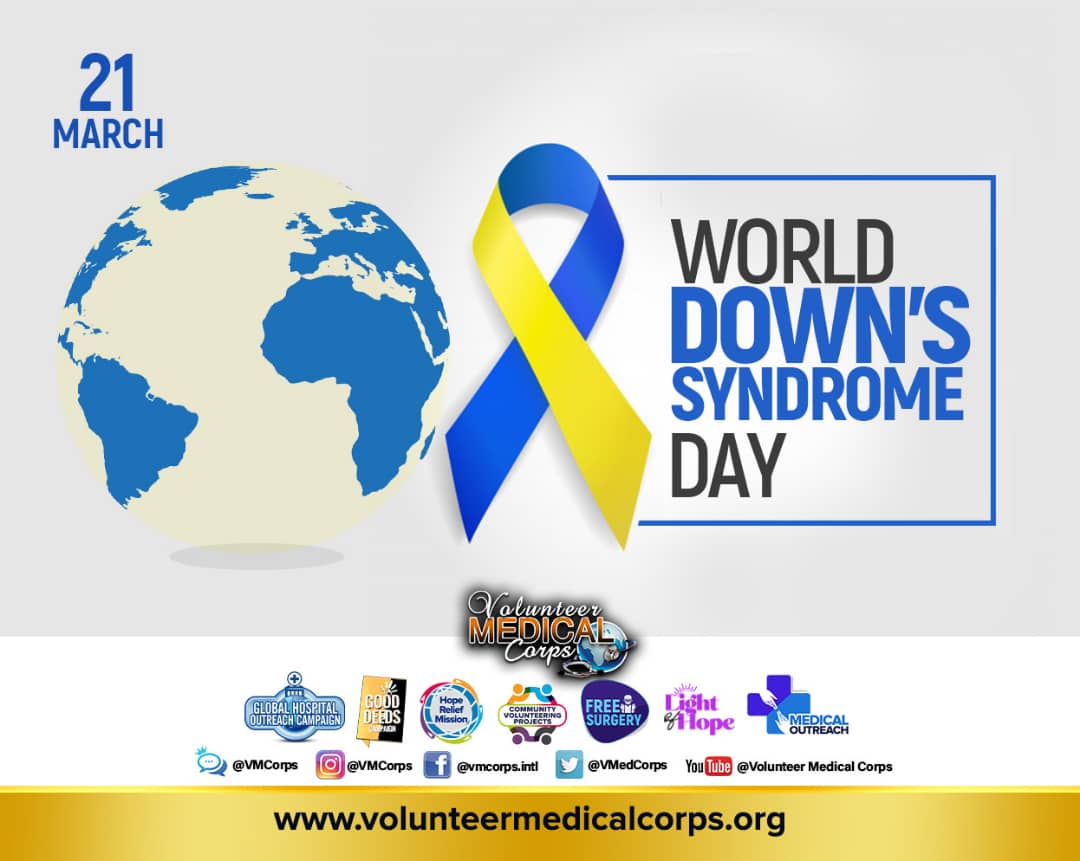
WORLD DOWN SYNDROME DAY (MARCH 21ST)
Down syndrome is a condition in which a baby is born with an extra chromosome number 21. The extra chromosome is associated with delays in the child’s mental and physical development, as well as an increased risk for health problems. Babies with Down syndrome usually have certain characteristic signs, including:
There are three types of down syndrome: Trisomy 21 (non-disjunction), Translocation and Mosaicism. In the majority of Down syndrome cases, the errors in cell division that lead to the extra 21st chromosome come from the child’s mother. As maternal age increases, the risk for Down syndrome increases. The most common causes of death in Down syndrome are heart and lung diseases which are the leading causes. Pneumonia and infectious lung disease, congenital heart defect (CHD) and circulatory disease (vascular diseases not including CHD or Ischaemic heart disease) account for 75% of deaths in persons with Down syndrome.
Adequate access to health care, early intervention programmes, and inclusive education, as well as appropriate research, are vital to the growth and development of the individual. The quality of life of people with Down syndrome can be improved by meeting their healthcare needs, including regular check-ups with health professionals to monitor their mental and physical condition and to provide timely intervention be it physiotherapy, occupational therapy, speech therapy, counselling or special education. Individuals with Down syndrome can achieve optimal quality of life through parental care and support, medical guidance, and community-based support systems such as inclusive education at all levels. This facilitates their participation in mainstream society and the fulfilment of their potential.
People with Down syndrome are special, let them know so, as many as you come across, show them love, care and support. Today's also a good day to visit a Down syndrome facility or someone with Down syndrome you know with a bag of goodies.
Admin